State Budget Included $15 Million in Earmarks for Robin Vos’ District
Gov. Evers didn’t veto funds sought by Assembly speaker as part of budget deal.
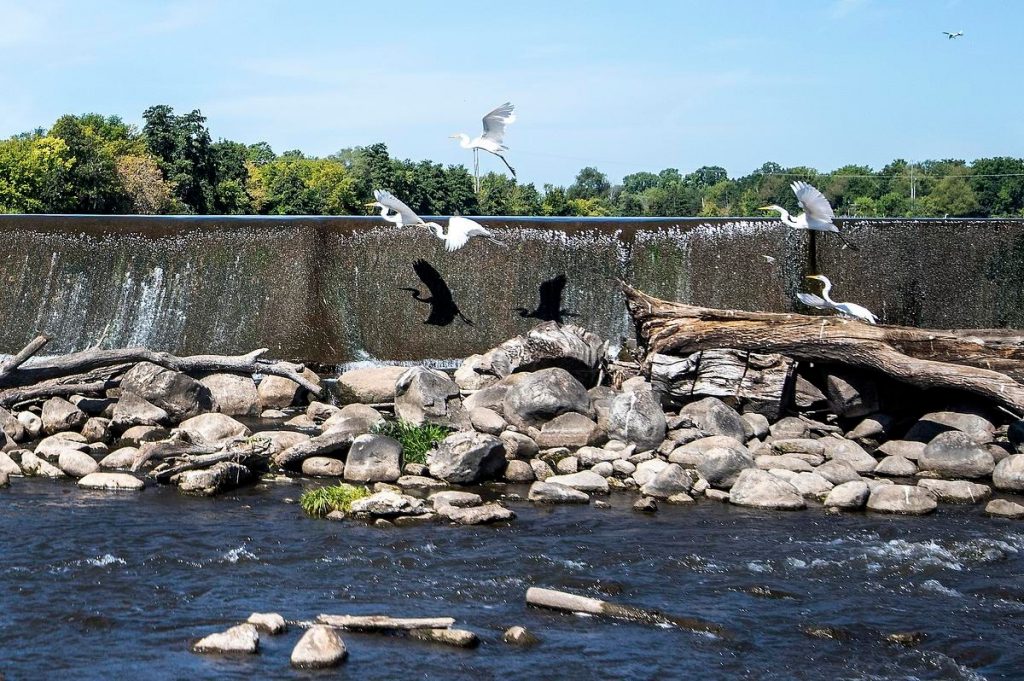
Egrets fly near the Echo Lake Dam on Sept. 1, 2022, in Burlington, Wis. The dam, located in Assembly Speaker Robin Vos’ district, received a $10 million earmark for repairs in the state budget as part of the final budget agreement between Gov. Tony Evers and legislative Republicans. (Angela Major / WPR)
Wisconsin’s recently passed budget doesn’t include the extension of a popular land conservation program, but it does include two earmarks for environmental projects in the home district of the state’s most powerful Assembly Republican.
After Republican legislators declined to reauthorize the Knowles-Nelson Stewardship Fund in the state budget, Democratic Gov. Tony Evers vetoed five natural resources projects, criticizing the Legislature for choosing “to benefit the politically connected few” instead of supporting stewardship through the statewide fund.
However, Evers didn’t veto other natural resources projects, including two totaling $15 million in Assembly Speaker Robin Vos’ district in southeastern Wisconsin west of Racine. Asked why Evers spared those projects, his spokesperson Britt Cudaback referred Wisconsin Watch, without specifics, to the agreement between Evers and legislative leadership that cemented the $111 billion two-year budget.
Local environmental earmarks in the state budget are nothing new, but the latest examples highlight how such projects can take on greater political dimension when not overseen by civil servants at the DNR and the Legislature’s budget committee, as has been the process for more than 30 years since the creation of the Knowles-Nelson fund. Legislators have allowed the program to inch closer to expiration while attempting to secure stewardship programs in their own districts.
The Knowles-Nelson Stewardship Fund supports land conservation and outdoor recreation through grants to local governments and nonprofits and also allows the Wisconsin Department of Natural Resources to purchase and maintain state land. The program is currently funded at $33 million a year until the end of June 2026.
Local governments and nonprofit organizations can apply for Knowles-Nelson grants during three deadlines every year, and DNR staff evaluate and rank projects based on objective criteria including local public support, potential conservation benefits and proximity to population centers.
Despite not authorizing the fund through the state budget, Rep. Tony Kurtz, R-Wonewoc, and Sen. Patrick Testin, R-Stevens Point, committed to reauthorizing the fund and introduced stand-alone legislation in June to reauthorize the stewardship fund at $28.25 million per year for the next four years.
Burlington receives $15 million for two natural resources projects
The two projects in Vos’ district received a total of $15 million in state taxpayer dollars from the general fund and were the only natural resources earmarks mentioned in the state budget agreement between Republicans and Evers.
The only larger natural resources earmark — a $42 million grant for a dam in Rothschild — was added by the Joint Finance Committee and included in the final state budget, though it wasn’t mentioned in the agreement. That grant isn’t funded with general fund revenue, but rather a separate forestry account, which includes revenues from the sale of timber on public lands.

Wisconsin Assembly Speaker Robin Vos, R-Rochester, speaks to the Wisconsin Assembly during a floor session Jan. 14, 2025, at the State Capitol in Madison, Wis. (Joe Timmerman / Wisconsin Watch)
In a statement on the inclusion of funding for the projects, Vos, R-Rochester, touted how $10 million for the Echo Lake Dam will save Burlington residents an average of $3,000 in taxes that would otherwise fund the project. Upgrades to Echo Lake will cost as much as $12 million including $3.5 million for dam modifications and up to $5 million for lake dredging.
For years, city officials in Burlington have grappled with how to address the Echo Lake Dam. In 2022, the Burlington City Council considered removing the 200-year-old dam but ultimately voted to keep it after residents expressed support though an advisory referendum. The dam needs upgrades because it doesn’t meet DNR requirements to contain a 500-year flood.
The Browns Lake Sanitary District also received $5 million for the removal of sediment in Browns Lake. Local residents have raised concerns over sedimentation in the lake, affecting the lake’s usability for recreation and ecological balance.
In a website devoted to the Browns Lake dredging, Claude Lois, president of the Browns Lake Sanitary District, thanked Vos for including $5 million for the project and advised residents: “If you see Robin Vos, please thank him.”

An image from the Browns Lake Preliminary Permit shows the proposed dredging areas for the lake. (Source: https://www.brownslakesanitarydistrict.com/)
DNR spokesperson Andrea Sedlacek directed Wisconsin Watch to Evers’ spokesperson, declining to answer questions on whether the two projects in Vos’ district could have been covered by Knowles-Nelson funds. The Echo Lake Dam project tentatively received a grant for over $700,000 from the Knowles-Nelson Stewardship Fund last fall for development of gathering spaces adjacent to the lake.
Other conservation projects were vetoed by Evers, including a $70,000 dredging project on a section of the Manitowoc River in the town of Brillion. Ultimately, the DNR and the Evers administration provided funding for the project after Sen. Andre Jacque, R-New Franken, and local farmers criticized the veto, claiming that they were at risk of flooding without funds for the dredging project.
Rep. Rob Swearingen, R-Rhinelander, said he was surprised and disappointed with Evers’ veto of the Deerskin River dredging project in his district. He called Evers’ reasoning a “lame excuse, using the Knowles-Nelson program as political cover” in an email statement to Wisconsin Watch. Swearingen said he and Senate President Mary Felzkowski, R-Tomahawk, were considering alternative funding sources, including introducing stand-alone legislation to finance the dredging project.
Swearingen declined to say what he thought about the projects in Vos’ district getting funded. Other Republican lawmakers with vetoed projects in their districts didn’t respond to a request for comment.

Rep. Deb Andraca, D-Whitefish Bay, left, talks to Rep. Joe Sheehan, D-Sheboygan, right, prior to the Wisconsin Assembly convening during a floor session Jan. 14, 2025, at the State Capitol in Madison, Wis. (Joe Timmerman / Wisconsin Watch)
Rep. Deb Andraca, D-Whitefish Bay, a member of the budget-writing Joint Finance Committee, told Wisconsin Watch she supports Evers’ vetoes because the earmarked projects did not go through the process the DNR uses to evaluate the benefits of particular projects.
Andraca said while several earmarked projects were likely strong contenders for Knowles-Nelson, without the DNR’s process of evaluating project merit, the most beneficial projects may not receive funding.
“We need to make sure that we’re taking into account that the best, most important projects are being funded, not just the projects that are in someone’s (district) who might have a little bit more sway in the Legislature,” Andraca said.
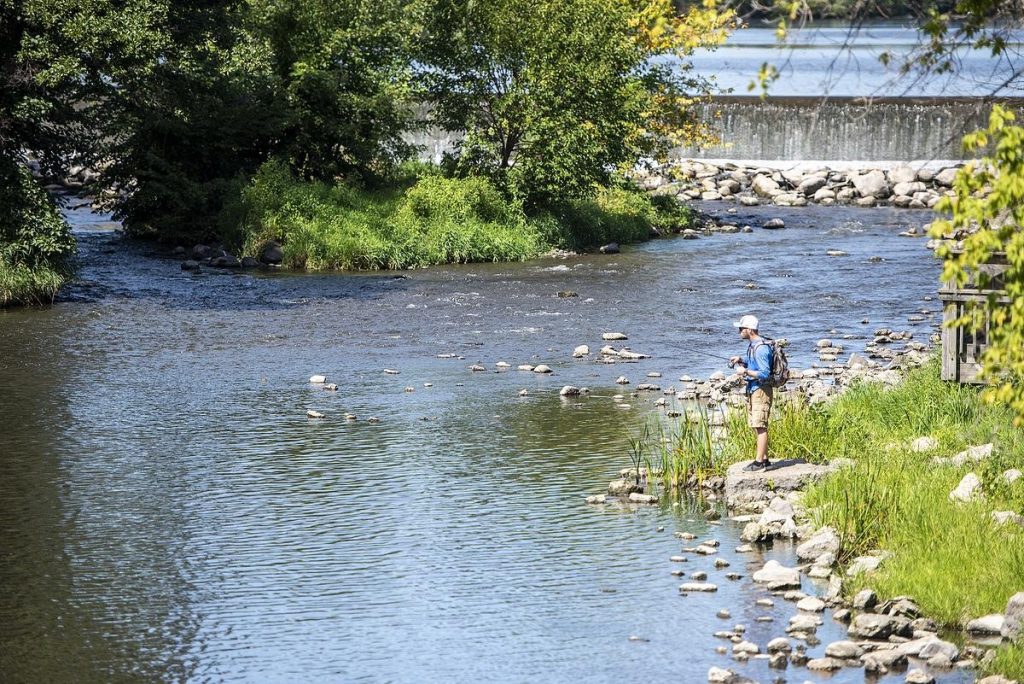
An angler casts a line near the Echo Lake Dam on Sept. 1, 2022, in Burlington, Wis. The Echo Lake Dam project tentatively received a grant for over $700,000 from the Knowles-Nelson Stewardship Fund for development of gathering spaces adjacent to the lake and got a $10 million earmark in the latest state budget. (Angela Major / WPR)
Paul Heinen, policy director for environmental advocacy organization Green Fire, lobbied for the first stewardship fund in 1989. Heinen said legislators have pushed for stewardship projects in their districts through the state budget process for as long as the stewardship fund has existed.
In the 2023-25 budget cycle, the largest natural resources earmark was $2 million for dredging Lake Mallalieu near River Falls.
Heinen said legislators are faced with a conundrum — they claim to oppose statewide government spending on stewardship, but want projects in their own districts.
“Publicly, they say they’re opposed to government spending in this boondoggle stewardship fund,” Heinen said. “But then when it gets down to something in their district, they are at the ribbon cutting.”
State Supreme Court decision complicates reauthorization
For years the JFC halted Knowles-Nelson conservation projects by not taking a vote on them, something critics referred to as a “pocket veto.” The Evers administration sued over the practice, and in July 2024 the Wisconsin Supreme Court ruled 6-1 the Legislature’s pocket veto was unconstitutional.
“What the court said was that the finance committee by going back after the fact and blocking an appropriation that had already been approved by the entire Legislature, and that was an unconstitutional infringement on executive authority,” said Charles Carlin, director of strategic initiatives for Gathering Waters, an alliance of land trusts in the state.
Republicans have said trust issues with both the DNR and the Evers administration prevented them from releasing Knowles-Nelson funds without more control.
Kurtz and Testin’s proposed bill also includes new requirements for legislative approval for larger projects over $1 million in an effort to allow legislative oversight without the pocket vetoes.

Wisconsin Joint Finance Committee Vice Chair Rep. Tony Kurtz, R-Wonewoc, listens to a fellow legislator during a Joint Finance Committee executive session June 5, 2025, at the State Capitol in Madison, Wis. Kurtz has proposed legislation that would reauthorize the Knowles-Nelson Stewardship Fund at $28.25 million per year. (Joe Timmerman / Wisconsin Watch)
The bill’s funding level is below the $100 million per year for 10 years that Evers proposed in his budget, but close to current funding levels of $33 million per year.
In 2021, the fund was reauthorized with $33.2 million per year for four years. In 2019, the fund was reauthorized for only two years, breaking a cycle of reauthorization in 10-year increments.
A poll of 516 Wisconsin voters commissioned by environmental advocacy organization The Nature Conservancy found 83% supported Evers’ proposal, with 93% of voters supporting continued public funding for conservation. However, most respondents were unaware of the Knowles-Nelson Stewardship Fund.
“There was a lot of talk initially from mostly Republican legislators who were skeptical of the governor’s proposal,” Carlin said. “But it’s really only a huge amount of money in comparison to how the program had kind of been whittled down through the years.”
In a January interview with the Cap Times, Vos said the chances of Republicans reauthorizing the fund were less than half.
Andraca said she hears more from constituents about the Knowles-Nelson Stewardship Fund than almost any other program.
“I seriously hope that my Republican colleagues are serious about passing something because it would be a real tragedy to lose something like this that has bipartisan support and has been so instrumental in preserving Wisconsin’s natural areas,” Andraca said.
‘Totally uncharted territory’ for stewardship funding
Carlin said the failure to reauthorize Knowles-Nelson puts land stewardship organizations and local municipalities — the typical recipients of Knowles-Nelson grants — in “totally uncharted territory.”
Although Knowles-Nelson funding is set to expire at the end of next June, Carlin said local governments and land trusts face uncertainty in planning because they aren’t sure the Legislature will get the new reauthorization bill done.
“Similar to what you’re probably hearing from folks about federal budget cuts … this just totally scrambles the planning horizon,” Carlin said.
Heinen, however, is more optimistic the Legislature will vote to reauthorize Knowles-Nelson.
“90-plus percent of the people in the state of Wisconsin want the stewardship fund,” Heinen said. “Legislators know that. They’re not going to go running for reelection in November of next year and have their opponents say, ‘Why are you against the stewardship fund?’ So I’m really not worried about it at all.”
This article first appeared on Wisconsin Watch and is republished here under a Creative Commons Attribution-NoDerivatives 4.0 International License.![]()
If you think stories like this are important, become a member of Urban Milwaukee and help support real, independent journalism. Plus you get some cool added benefits.

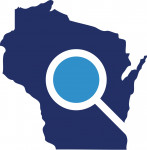
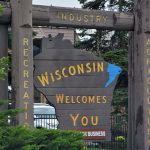

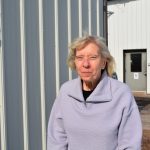
















‘The Republicans on the Joint Finance Committee killed the very popular Cedar Gorge Clay Bluffs Stewardship project in Ozaukee County become reportedly some developer wanted to use the land to build lakefront home. Governor Evers found other funding so the project moved ahead. The optics of such actions by the Republicans could indicate that someone got paid off but this was never investigated. I would like to know what Evers got for rolling over to these earmarks for Voss. If the Echo Lake is so important to the good people of Burlington, let them pay for it. j